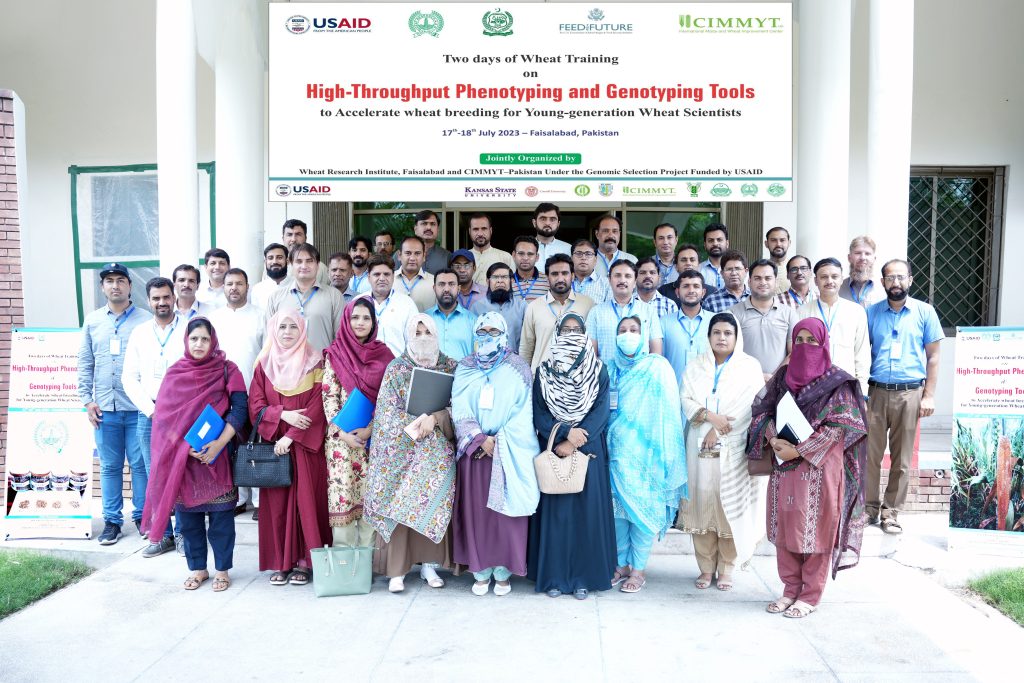On July 17-18, 2023, 87 wheat scientists gathered to learn about new approaches and methods for wheat improvement in Faisalabad, Pakistan. CIMMYT and the Wheat Research Institute, Faisalabad (WRI-FSD) jointly organized a two-day training. The course covered two topics: high throughput genotyping technologies and high throughput phenotyping platforms. The trainees, who were able to attend in person or remotely and 27% of whom were women, hailed from 17 NARES partners across Pakistan.

After being welcomed by the Director General of Ayub Agricultural Research Institute (AARI), Akhtar Ali, and CIMMYT’s Country Representative, TP Tiwari, participants received an update on the status of wheat in Pakistan from Muhammad Sohail, national wheat coordinator for the Pakistan Agricultural Research Council (PARC). Subsequently, WRI-FSD Director, Javed Ahmed, discussed wheat research in Punjab, where over 70% wheat is grown in Pakistan. Kevin Pixley, interim director of CIMMYT’s Global Wheat Program, joined the proceedings remotely for a conversation about CIMMYT’s and CGIAR’s collaboration with NARES. Participants discussed the model’s successes, bottlenecks, the role of NARES, and the potential for capacity development. The conversation generated broad interest and suggestions for enhancing the partnership’s effectiveness. Akhtar Ali, Muhammad Sohail, and Javed Ahmed all spoke very highly about CIMMYT’s support in Pakistan.
This event was organized as part of a collaborative project entitled “Rapid development of climate resilient wheat varieties for South Asia using genomic selection” that is jointly managed by Kansas State University and CIMMYT with funding from the USAID Feed the Future program.
“Training emphasized the need for an output-oriented researcher that covered the development of climate-resilient wheat varieties, given the environmental challenges we are experiencing like, drought and heat, and highlighted the importance of innovative methodologies and advanced tools for high throughput phenotyping and genotyping for sustainable and resilient wheat production in Pakistan” said Muhammad Ishaq, a senior research officer and one of the training participants from Kohat Research Station, Khyber Pakhtunkhwa.
At the conclusion of the training, Javed, direct of WRI Faisalabad, commended CIMMYT’s support and suggested continuing the pace of training. Dr. Tiwari stressed the importance of such efforts will help Pakistan’s scientists develop and deploy climate resilient, impactful wheat varieties to boost wheat production and reduce wheat imports in the country.
 Innovations
Innovations 